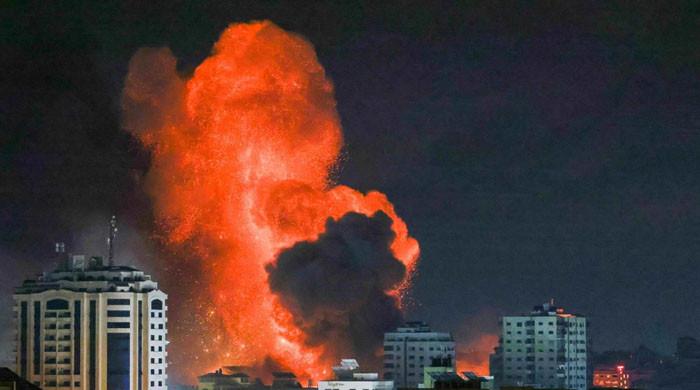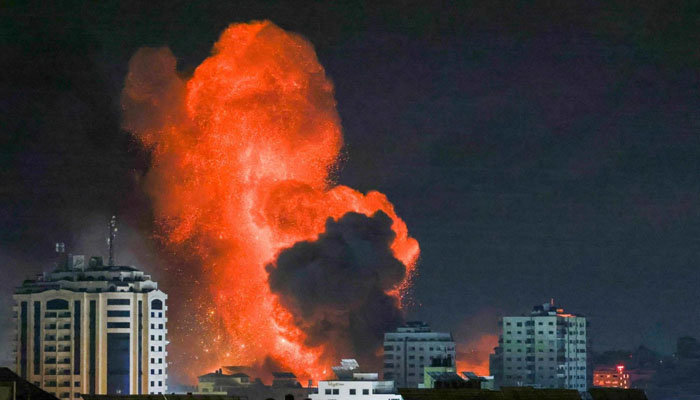Israel-Hamas war: Will oil prices keep increasing as attacks on Gaza continue?
After violence broke out between Israel and Hamas, speculations over how the crisis may affect Middle Eastern energy production caused oil prices to soar on a global scale.
On Monday, the US standard West Texas Intermediate increased 4.3% to $86.38 per barrel, while the global benchmark Brent Crude increased 4.2% to $88.15 per barrel.
Brent Crude and West Texas Intermediate prices on Tuesday decreased by 36 cents and 35 cents, respectively.
Although neither Israel nor the beleaguered Gaza Strip are major oil producers, worries that the conflict may cause greater regional instability have rattled the markets.
The Middle East is home to some of the biggest oil producers in the world, such as Iran and Saudi Arabia, as well as vital transit routes like the Strait of Hormuz, which is referred to as the biggest “oil chokepoint” in the world.
Will oil prices continue to rise in the near future?
Although a lot will depend on how the war develops, economists predict that the immediate impact on energy prices will probably be minimal.
The battle between Israeli soldiers and Hamas fighters, which has so far claimed 1,800 lives in Israel and Gaza, does not directly involve oil-producing countries, in contrast to the jump in oil prices that followed Russia’s invasion of Ukraine last year.
The oil supply is not in immediate jeopardy, according to a note from Morgan Stanley, but that might change if the violence spreads to neighbouring nations.
“In the very short term, despite the speculative reaction we are seeing in the oil market, I see the upside risk to crude prices as actually being limited from this event,” Mike Rothman, president and founder of Cornerstone Analytics, told Al Jazeera.
In addition, according to Rothman, he does not anticipate that the conflict will have an effect on OPEC output or global demand over the long run, however other variables such as falling global oil stockpiles may have an impact on pricing.
Which variables can cause oil prices to increase even more?
Two important things to keep an eye on are whether the battle involves Iran or Hezbollah, a Palestinian fighter organisation with roots in Lebanon that is a supporter of both Iran and Hamas.
Hezbollah claimed responsibility for firing a barrage of rockets on Monday amid escalating border tensions after at least three of its fighters were killed during an Israeli airstrike.
In response to a Wall Street Journal article that alleged Iranian security personnel assisted in Hamas’s surprise attack on Israel on Saturday, Iran denied involvement in the attack.
Although Tehran congratulated Hamas after the strike, the US and Israeli militaries claim to have found no evidence to substantiate Iranian involvement.
How might Iran’s involvement impact oil prices?
In 2018, former US President Donald Trump reinstated sanctions on Iran’s oil sector; however, as Washington and Tehran restarted negotiations over the Islamic Republic’s contentious nuclear programme in 2022 and 2023, Iranian oil exports and production increased.
Any proof of Iranian complicity in the Hamas attack would probably be detrimental to those talks and would result in additional US restrictions on Iranian energy.
“The recent jump in oil price reflects the oil market being concerned about the conflict becoming a wider conflagration, which could involve Middle East regional players becoming involved through their proxy agents,” Alan Gelder, an analyst at Wood Mackenzie, told Al Jazeera.
“The most immediate market impact could become more stringent enforcement on Iranian exports – which have grown by over 400 kb/d over the course of this year – by the US if the conflict widens. We are closely watching regional and international diplomatic efforts to avoid further escalation.”
Rapidan Energy Group President Bob McNally stated that if Iran were to become involved in the crisis, oil prices may increase by $5 to $10 per barrel in an interview with CNBC on Monday.
However, Rothman claimed that he had “serious doubts” over the likelihood of Israel openly engaging Iran militarily.
“While Tehran has indicated its support for the Hamas attack, that verbal support falls well short of the evidence needed for Israel to respond kinetically to Iran,” he said.
What happened to oil prices during previous Israeli-Palestine conflicts?
The 1973 oil crisis, which followed the October War and saw Egypt and Syria launch a surprise attack on Israel to retake territory, has been brought to mind by the recent increase in oil prices.
Similar to Hamas’s attack on Saturday, the battle fifty years ago started on a Jewish holiday and caught Israeli soldiers off guard.
Oil prices quadrupled over the ensuing months as a result of Arab oil-producing nations cutting oil output and imposing embargoes on the US and some of its allies in retaliation for US support for Israel during the 1973 conflict.
But things are quite different now than they were then.
A “near-zero probability” of such a sharp price increase this time, according to Rothman, was stated.
“The fallout of the ’73 embargo made many in OPEC conclude that the action was a huge mistake because of the decades of ill-will generated by the large oil-consuming nations,” he said.
For all the latest business News Click Here


